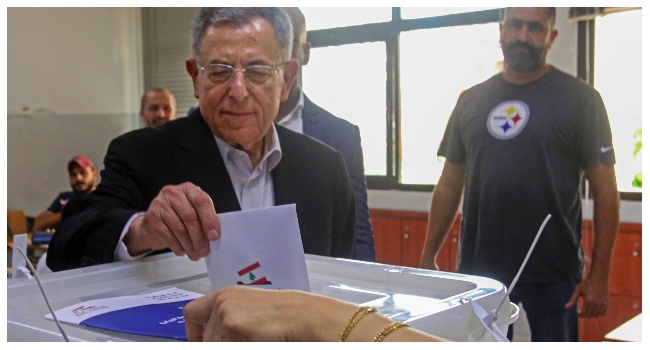Lebanon voted Sunday in its first election since multiple crises dragged it to the brink of failed statehood, a major test for new opposition groups bent on removing the ruling elites, IgbereTV reports

Observers have warned not to expect any seismic shift, with every lever of power firmly in the hands of traditional sectarian parties and an electoral system rigged in their favour.
After an underwhelming campaign stifled by the nation’s all-consuming economic turmoil, queues of voters started forming when polling stations opened at 7:00 am (0400 GMT).
The army deployed across the country to secure a parliamentary election Lebanon’s donors have stressed was a pre-requisite for financial aid crucial to rescue it from bankruptcy.
A new generation of independent candidates and parties are hoping to kindle the change that an unprecedented anti-corruption uprising in 2019 failed to deliver.
“I am with change because we tried this current political class before and now is the time to bring in new faces,” Nayla, a 28-year-old who only gave her first name, said after casting her vote in Beirut.
Independents can hope for more than the lone seat they clinched in 2018 but most of parliament’s 128 seats will remain in the clutches of a political elite blamed for the country’s woes.
The outgoing chamber was dominated by the Iran-backed Shiite movement Hezbollah and its two main allies: the Shiite Amal party of speaker Nabih Berri who has held the job since 1992, and the Christian Free Patriotic Movement of President Michel Aoun.
“It seems almost impossible to imagine Lebanon voting for more of the same — and yet that appears to be the likeliest outcome,” said Sam Heller, an analyst with the Century Foundation.
Lebanon was mutilated by an August 2020 blast at the Beirut port that went down as one of the largest non-nuclear explosions in history and deepened one of the most spectacular economic downturns of our time





